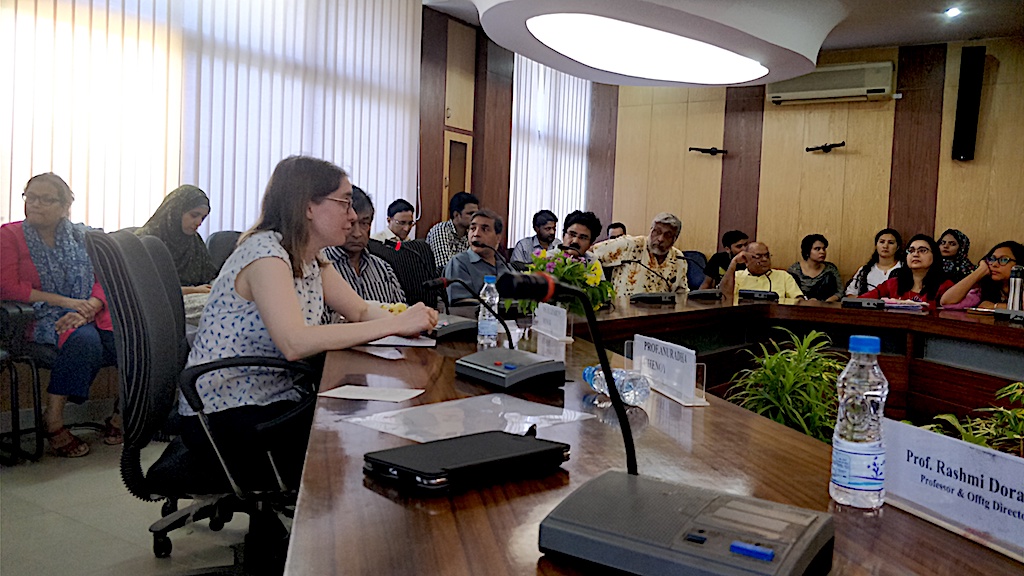BeyondHeadlines News Desk
New Delhi: MMAJ Academy of International Studies, JMI organised a lecture by Ms Elizabeth Minor on ‘Creating Change in International Disarmament: Humanitarian Perspectives and the Role of Civil Society’ on 24 April 2019. Ms Elizabeth Minor is part of the International Steering Group of the International Campaign to Abolish Nuclear Weapons (ICAN) and was part of the ICAN team that won the Nobel Peace Prize in 2017. She is Advisor at Article 36, a UK based NGO that works for stronger international standards and greater public scrutiny over weapons, through research, advocacy and campaigns for new international laws and policies that can better protect civilians. The talk was chaired by Prof Anuradha Chenoy from the School of International Studies, JNU, who is an expert on Eurasia, gender and human security issues in relation to International Relations.
Ms Minor pointed out that the movement of a humanitarian perspective on arms came to the fore in the 1990s with the issue of anti-personal landmines that were left along borders to be remotely activated or accidentally stepped on. There were 100 million landmines in 64 countries with countries such as Afghanistan and Angola leading the list. These landmines cost US$ 5 to lay, but US $ 100 to defuse. The International Campaign to Ban Landmines used several strategies including that of celebrity endorsement, in this case from Princess Diana. Campaigns have also been conducted against cluster bombs, nuclear weapons and drones and other next-generation weapons and killer robots that rely on automation and artificial intelligence. De-humanised violence was still violence.
Humanitarian perspectives based on facts and data on weapons that can be used in wars and those that must not be used (particularly those that indiscriminately kill civilian population) are important to move the focus away from the moralistic discourse. This has helped in the banning of biological weapons in 1972, chemical weapons in 1993, land mines in 1997, cluster bombs in 2008. Humanitarian perspectives from civil society and academic discourses, Minor said, play an important role in shifting the focus from ‘nuclear deterrence’ to banning of nuclear weapons.









